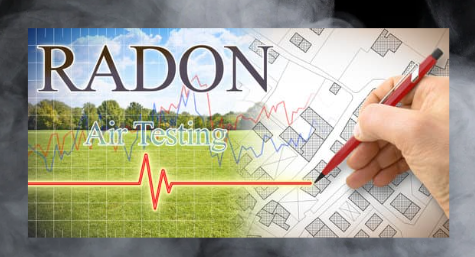Radon Exposure: Protecting Your Family and Pets

Radon is a silent intruder that can seep into our homes undetected, posing significant health risks that may not be widely known. In this blog, we will delve into what radon is, its unique characteristics, and whether it affects children more than adults or our furry companions. We'll also explore what you need to know to protect your family from this invisible danger.
What is Radon?
Radon is an odorless, colorless, and tasteless radioactive gas that occurs naturally in the Earth's soil and rock. It is a byproduct of the decay of uranium, thorium, and radium, which are common elements found in the Earth's crust. Radon gas can enter homes through cracks in the foundation, gaps in construction materials, and other openings, including well water. Once inside, it can accumulate to dangerous levels, posing serious health risks to those exposed to it.
Radon's Unique Characteristics
-
Radioactive Emissions: Radon emits alpha particles, which can damage lung tissue when inhaled. These particles can attach themselves to dust and other airborne particles, increasing the risk of inhalation.
-
Variability: Radon levels can vary significantly from one location to another. Even neighboring houses can have vastly different radon concentrations. This makes testing crucial to assess your specific risk.
-
No Safe Level: Unlike many pollutants, there is no known safe level of radon exposure. Any exposure carries some risk, but the higher the radon levels and the longer the exposure, the greater the risk.
Does Radon Affect Children More Than Adults or Animals?
While radon exposure poses health risks to everyone, it does not discriminate based on age. Both children and adults can experience adverse health effects from radon exposure, particularly in the form of lung cancer. In fact, children may be at a higher risk because their respiratory systems are still developing, and they tend to breathe at a faster rate than adults. However, it is crucial to emphasize that radon is a risk to all individuals.
Regarding animals, there is limited research on the effects of radon exposure on pets. While animals, like humans, can inhale radon and its decay products, there isn't enough data to determine whether radon affects them differently or to what extent. Nevertheless, it's prudent to ensure your pets' well-being by addressing radon concerns in your home.
What You Should Know
-
Testing is Essential: The only way to know if your home has elevated radon levels is to conduct radon testing. Testing kits are readily available and affordable, making it easy to assess your risk.
-
Mitigation is Possible: If high radon levels are detected, radon mitigation systems can effectively reduce radon concentrations in your home. These systems often involve the installation of ventilation and sealing techniques.
-
Regular Testing is Advisable: Radon levels can change over time, so it's important to conduct periodic testing, especially if you've made changes to your home's structure or ventilation.
-
Professional Assistance: For accurate results and effective mitigation, it's advisable to seek the services of a certified radon professional who can conduct testing and recommend appropriate mitigation measures.
FAQ Regarding Radon
How do I know if my home has radon?
The only way to know for sure if your home has radon is to test the air. You can hire a qualified radon testing company to do this for you. Radon testing kits are also available for purchase at most hardware stores.
What are the symptoms of radon poisoning?
There are no symptoms of radon poisoning. The only way to know if you have been exposed to high levels of radon is to test the air in your home.
How can I reduce radon levels in my home?
There are a number of ways to reduce radon levels in your home. The most effective way is to install a radon mitigation system. A radon mitigation system is a fan that is installed in the basement or crawl space of your home. The fan draws radon out of the ground and vents it to the outside.
Is radon testing and mitigation expensive?
The cost of radon testing and mitigation will vary depending on the size of your home and the level of radon in the air. However, radon testing and mitigation are generally more affordable than the cost of treating lung cancer.
In conclusion, radon is a unique and often underestimated threat to our health, affecting individuals of all ages. Regular testing, awareness, and mitigation when necessary are essential steps in safeguarding your family and pets from this hidden danger lurking beneath our homes.


